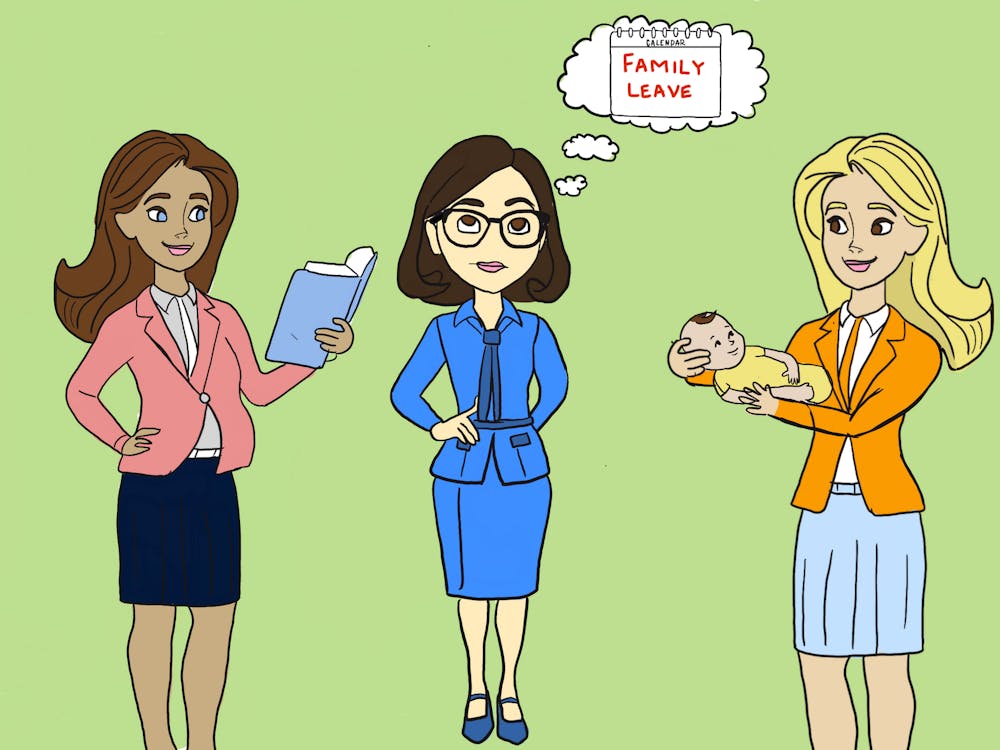If you haven't recently heard someone start a sentence with the words, "Well, in this economy ..." then you've been living in a cave. Even at the University - where many students are considered relatively affluent - people are talking about the difficulty of finding jobs and money, and everyone seems to be aware of how this will impact their lives once they leave Grounds for good.
When it comes to their more immediate concerns of paying for rent and food away from home, students react to this unsettling reality in different ways. Some may look for employment, while others may suffer silently with ramen, peanut butter sandwiches and the off-brand versions of, well, everything.
Matt Sutton, third-year College student and former Cavalier Daily senior advertising representative, didn't limit himself to these options. Instead of wallowing in sorrow about their lack of money, Sutton and his business partner, third-year College student Martin Molina, decided to take matters - along with some computers, TVs and cell phones - into their own hands.
In September 2009, Sutton and Molina started the business TechCheck, which Sutton describes as an on-site computer and electronics service. As opposed to maintaining a physical location where people take their broken electronics, Sutton, Molina and their two employees go to residences or businesses that need their assistance.
Sutton came up with the idea for TechCheck when he was visiting his grandfather, a Charlottesville resident.
"I was over there and saw [that he] had on his desk - a bill from Geek Squad - $300, for what appeared to be about 45 minutes of work," Sutton said.
Sutton was not only upset by the overpriced bill but also by the fact that his grandfather felt he had to accept the price, thanks in no small part to his lack of awareness of other options - which may actually have reflected a lack of having suitable options at all, Sutton said.
"We're just as dependent on computers as cars, yet there aren't nearly as many services [to fix them]," Sutton said.
Even without any formal training in fixing computers and other electronics, Sutton saw potential in the field and decided to take advantage of it.
Once he and Molina started TechCheck, they decided to market it to a group of primary customers between the ages of 35 and 60. The company received a "big break" in October 2009, when TechCheck established a relationship with the Colonnades Senior Living community.
"Eager students and an elderly community is the perfect marriage," Molina said.
TechCheck found success in this market, perhaps in part because it advertises itself as doing more than just servicing computers.
"We're more in the business of computer training than servicing," Sutton said. "When someone calls us and their computer is broken, we show them how we fixed it."
As TechCheck got off the ground, Sutton found it was not only more lucrative than his desk job but also more satisfying - now, after all, he was free to put his own ideas into his actions, Sutton said.\nMolina agreed, noting that the business allows the two to have a greater degree of independence than most University students regarding their personal finances.
"I've had a few run-of-the-mill minimum wage jobs, and compared to that, I enjoy the freedom TechCheck affords me," Molina said.
For students who want to emulate this success, Sutton suggested focusing on what could be the biggest hurdle to starting a business: coming up with a solid idea. Once one has a goal, Sutton said he believes charisma and work ethic can take a business far.
One must remember, however, that an idea is only perfect if it is able to hone in on a select, specific audience that would benefit from the company, he said.
As rare as student-run businesses may be, there are several other students on Grounds who have decided to take greater responsibility for their finances. For example, third-year College student Stephanie Nguyen is at the beginning of the process Sutton and Molina started a year ago.
"You caught me on the cusp," Nguyen said, describing her plans for her growing business of recycled purses.
While in town for an internship this past summer, Nguyen spent a lot of time at Shenandoah Joe's and local farmers markets. These experiences, which exposed her to the sale of sustainable products, inspired Nguyen to start her own business.
Interested in sewing, Nguyen thought she could make purses out of recycled materials, something she used to do as presents for friends and family. One of the first materials she considered was burlap, which lines the walls of Shenandoah Joe's. Nguyen then spoke with the store's manager about the imported bags, which come from areas such as Brazil and Honduras and are filled with coffee beans, hoping to buy enough materials to begin sewing.
The manager gave Nguyen her first bag for free and asked her to bring in samples of her future product. Nguyen made three purses out of the bag, lined with different fabrics, impressing the manager enough to consider selling the bags at Shenandoah Joe's. Both she and the manager thought of it as an effective way to encourage recycling because if the bags were not used, they would most likely end up in the trash.
Nguyen described the beginning of her business venture as experimental, adding that it is somewhat difficult to set prices for different pieces while attempting to account for both time and material and labor costs.
She is now working with the management of Shenandoah Joe's to see where the business can go.
"In the meantime, I have my immediate network; I'm working off of others' ideas," Nguyen said.
And although Nguyen is just in her third year of college, she noted that the purse-making business is actually her second attempt at entrepreneurship.
"I had a small business in seventh grade where a friend and I sewed ribbon belts together," Nguyen said, though she added that her current business may have slightly different goals. "The purpose isn't just to make money. [I like] to work with creative things in my area."
Like Sutton, Nguyen plans to strive for success by focusing on an area of expertise and a marketable idea to back it up, hoping that the University community will prove a supportive environment for her ventures.
"I'm hesitant to say it's 'easy' to start your own business, but [the University community] is an environment where people support you," Nguyen said. "You can find an idea that people your age can relate to, and it's easier to get clients. Word of mouth is very powerful at a university"






